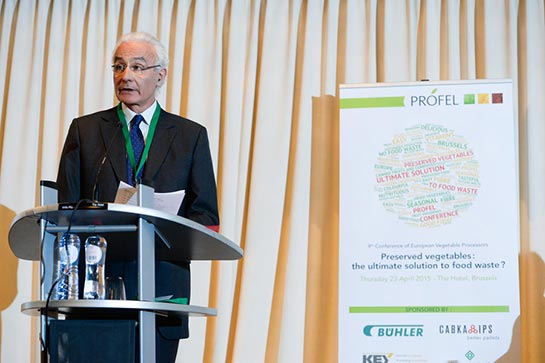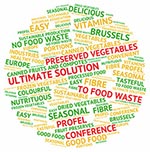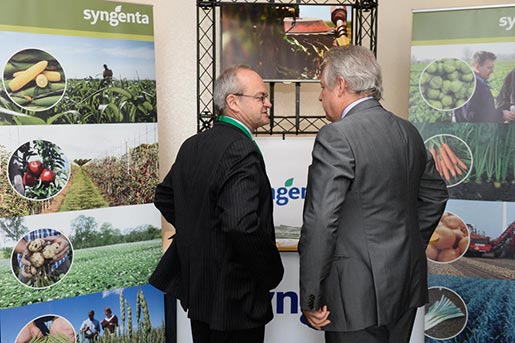Delegates from Europe’s leading frozen and canned vegetable and fruit industry met in Brussels recently with opinion makers and government officials from global and EU institutions to hear how long established food preservation methods, such as freezing and canning, have been overlooked as critical enablers in the battle to reduce levels of food waste.
Frozen and canned vegetables have a considerably longer shelf life than chilled or fresh food, without the need to add preservatives, explained members of the European Association of Fruit and Vegetable Processors (PROFEL), organizers of the conference. They pointed out that research has proved that their product lines can play a crucial role in helping Europeans reduce their spiraling levels of food waste in the home.
 President Jean-Bernard Bonduelle opens the PROFEL Conference in Brussels.
President Jean-Bernard Bonduelle opens the PROFEL Conference in Brussels.
 The theme was “Preserved Vegetables: The Ultimate Solution to Food Waste,” as the conference provided a forum for invite policymakers, researchers and industry representatives to participate in an open debate about where new sustainability thought leadership concepts. The discussion underlined the need to acknowledge an active contribution that the existing food preservation technologies are playing to reduce food waste.
The theme was “Preserved Vegetables: The Ultimate Solution to Food Waste,” as the conference provided a forum for invite policymakers, researchers and industry representatives to participate in an open debate about where new sustainability thought leadership concepts. The discussion underlined the need to acknowledge an active contribution that the existing food preservation technologies are playing to reduce food waste.
The techniques of freezing and canning foodstuffs were developed many years ago, specifically to respond to a need to preserve food and to avoid waste. These are tried and tested methods of preservation, using cold or heat to lock-in the natural characteristics of the products, without additives.
 The PROFEL gathering afforded plenty of opportunity for vegetable and fruit processing industry professionals to network with colleagues as well as goverment officials and consultants.
The PROFEL gathering afforded plenty of opportunity for vegetable and fruit processing industry professionals to network with colleagues as well as goverment officials and consultants.
“Responsibility for reducing food waste lies with the food industry, the supply chain and with consumers. However, opinion formers and policy decision makers, also play a crucial role in guiding all stakeholders, from governments to consumers. We call on them all to support the ‘easy wins’ that the preserved vegetable sector can deliver in the battle to reduce food waste,” declared PROFEL.
 In addition to numerous presentations adressing trends in the vegetable and fruit processing sector, The PROFEL event featured a table-top trade show. Here we see industry executives chatting in front of the Syngenta stand.
In addition to numerous presentations adressing trends in the vegetable and fruit processing sector, The PROFEL event featured a table-top trade show. Here we see industry executives chatting in front of the Syngenta stand.
The Brussels-headquartered trade group’s membership accounts for approximately 3,100,000 of frozen vegetable output per annum, in addition to 2,000,000 tons of canned vegetables, plus a considerable volume of fruit preserves and jams, canned fruit and compotes and dried vegetables.





